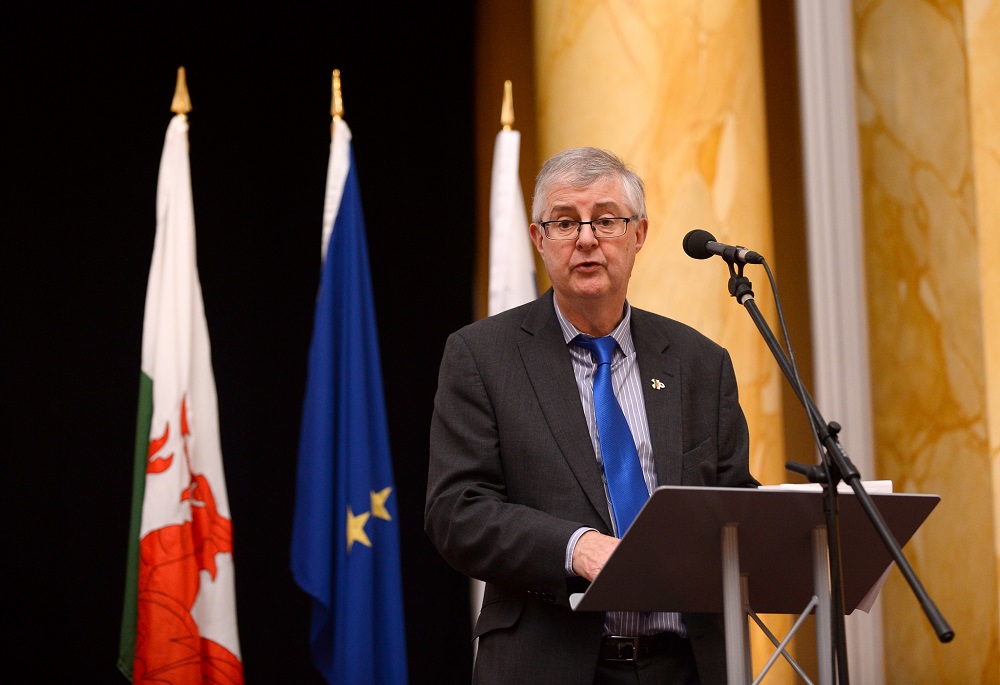Drakeford stepped up direct diplomacy with Brussels after Downing Street Brexit bust-up

The Welsh government intensified its direct diplomacy with the European Union after a high-profile Brexit bust-up with Downing Street, new transparency data shows.
Mark Drakeford and his ministers held their first talks with senior EU figures this year shortly after boycotting a Brexit meeting with the UK government this summer.
The Welsh Government’s Brexit advisors had urged them to make Wales’ case directly to the EU.
The register of ministerial meetings shows the First Minister met the EU ambassador to the UK, João Vale de Almeida, on Monday July 20.
The meeting, which wasn’t publicised at the time, was Drakeford’s first with an EU representative since he travelled to Brussels to meet its chief Brexit negotiator Michel Barnier last June and the first by any minister with an EU representative since Brexit minister Jeremy Miles met European Parliament negotiators last October.
It came weeks after Drakeford saw his request for a Brexit extension, made jointly with his Scottish counterpart Nicola Sturgeon, “dismissed” by the UK government before it was even discussed.
That resulted in the Welsh and Scottish governments pulling out of a Brexit meeting with a Conservative minister.
“We want the EU 27 to know that the position being taken by the UK Government with regard to an extension of the transition period runs counter to the views of our governments,” said a joint statement issued by the Welsh and Scottish governments at the time.
Drakeford subsequently held a second meeting with Vale de Almeida in Cardiff on September 24.
It means Drakeford met Vale de Almeida more times between July and September than he met Boris Johnson.
Despite his requests for “regular, reliable rhythm of engagement” from the Prime Minister, Drakeford received just one phone call and one meeting during that period.
International relations minister Eluned Morgan took part in the meeting with Vale de Almeida.
While in Wales, the EU ambassador also had dinner with Jeremy Miles and addressed a meeting of the Welsh government’s European advisory group.
“Wales is keen to keep close ties with EU and so are we,” the Portuguese diplomat wrote of his first official visit to Wales.
A day before the second meeting, Drakeford had met Thomas Opperman, the vice-president of the German Bundestag and member of its foreign affairs committee.
Neither party appear to have publicised the meeting at the time. When Oppermann met Nicola Sturgeon in 2017, he posted a photo of them with the caption: “We fully agree: Brexit will not divide us!”
The Scottish government too stepped-up its representations to the EU in June, with Brexit minister Mike Russell holding meetings with three senior MEPs, as well as the Irish foreign affairs minister, Ireland’s ambassador to the EU and France’s Europe minister.
‘Let us join’
The flurry of meetings came after the Welsh government’s European advisory group called on ministers to make their divergence from the UK government’s positions clear to the EU.
The group set up in the wake of the 2016 referendum includes former European Commissioner Neil Kinnock and the Welsh architect of the EU’s Erasmus student exchange scheme, Dr Hywel Ceri Jones, as well as representatives of councils, universities, trade unions, businesses and charities.
The minutes for the July meeting state: “The relationship between the Welsh Government and the EU Delegation to the UK was discussed. It was essential that the Delegation understood the Welsh Government perspective.”
Miles had earlier told the meeting that “there was little evidence that the UK government was paying regard to Welsh priorities” despite ongoing efforts to influence their strategy.
However, he raised the possibility of Wales participating in certain EU programmes, like Erasmus and the €100bn Horizon research scheme, independently of the rest of the UK.
That was also discussed by a Welsh government adviser in correspondence published in reply to a freedom of information request.
“On Erasmus: obviously emphasise that the lack of enthusiasm is UKG – all the DAs remain very enthusiastic,” the adviser told Wales Higher Education Brussels.
“I should also say that our policy position is technically that they should let us join even if England isn’t keen.”
The UK government has previously reacted to the Welsh government’s divergence on Brexit policy by refusing to provide Drakeford with an official car during his last visit to Brussels.
Minutes of an earlier meeting of the Brexit advisory group show there are discussions ongoing about the possibility of a new EU delegation office in Cardiff following the closure of the previous EU information office on January 31.
Support our Nation today
For the price of a cup of coffee a month you can help us create an independent, not-for-profit, national news service for the people of Wales, by the people of Wales.






